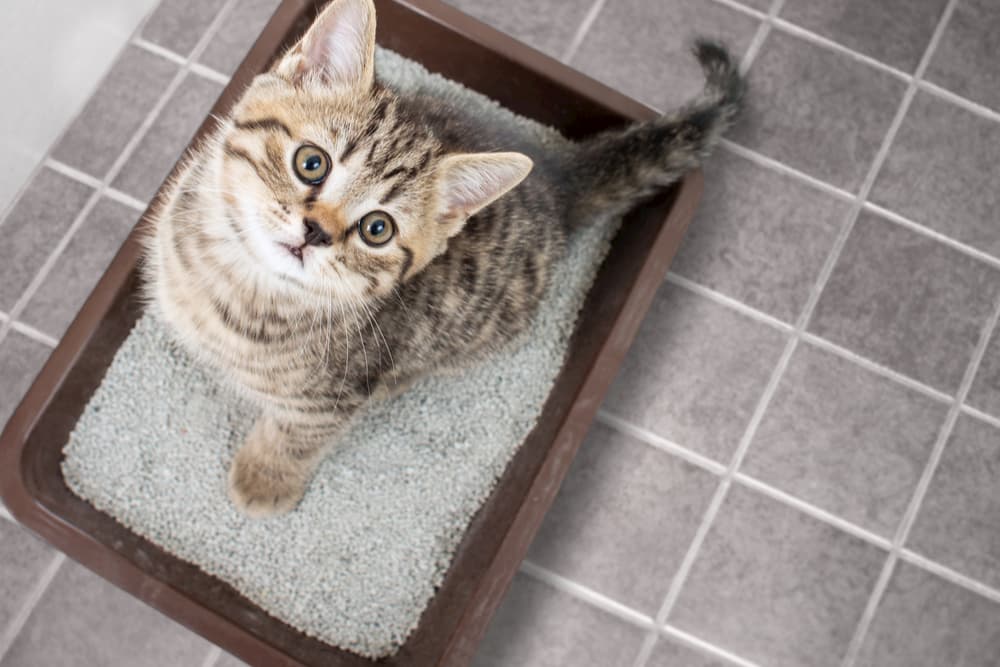Why Flushing Cat Poop Down Your Toilet Isn't a Good Idea - Tips for Safer Disposal
Why Flushing Cat Poop Down Your Toilet Isn't a Good Idea - Tips for Safer Disposal
Blog Article
On this page below you'll find lots of excellent help and advice all about How to Dispose of Cat Poop and Litter Without Plastic Bags.

Intro
As pet cat proprietors, it's vital to bear in mind just how we dispose of our feline friends' waste. While it may appear hassle-free to purge feline poop down the bathroom, this practice can have detrimental consequences for both the setting and human health and wellness.
Environmental Impact
Purging pet cat poop introduces harmful virus and parasites into the water system, positioning a significant danger to aquatic ecological communities. These pollutants can negatively affect aquatic life and compromise water top quality.
Health and wellness Risks
Along with environmental worries, purging cat waste can additionally pose health and wellness threats to humans. Cat feces may include Toxoplasma gondii, a bloodsucker that can create toxoplasmosis-- a possibly severe disease, especially for expecting females and people with weakened body immune systems.
Alternatives to Flushing
Thankfully, there are much safer and much more accountable methods to take care of pet cat poop. Think about the complying with alternatives:
1. Scoop and Dispose in Trash
One of the most typical technique of taking care of feline poop is to scoop it into a biodegradable bag and throw it in the garbage. Make sure to utilize a devoted litter scoop and get rid of the waste without delay.
2. Use Biodegradable Litter
Choose eco-friendly feline trash made from materials such as corn or wheat. These litters are eco-friendly and can be safely disposed of in the trash.
3. Hide in the Yard
If you have a lawn, take into consideration burying pet cat waste in a designated location far from vegetable yards and water resources. Be sure to dig deep adequate to stop contamination of groundwater.
4. Install a Pet Waste Disposal System
Invest in a family pet garbage disposal system specifically developed for feline waste. These systems make use of enzymes to break down the waste, decreasing odor and ecological influence.
Verdict
Responsible animal ownership prolongs beyond offering food and shelter-- it likewise includes appropriate waste administration. By avoiding flushing cat poop down the commode and going with alternate disposal methods, we can reduce our ecological impact and protect human wellness.
Why You Should Never Flush Cat Poop Down the Toilet
A rose by any other name might smell as sweet, but not all poop is created equal. Toilets, and our sewage systems, are designed for human excrement, not animal waste. It might seem like it couldn’t hurt to toss cat feces into the loo, but it’s not a good idea to flush cat poop in the toilet.
First and foremost, assuming your cat uses a litter box, any waste is going to have litter on it. And even the smallest amount of litter can wreak havoc on plumbing.
Over time, small amounts build up, filling up your septic system. Most litter sold today is clumping; it is made from a type of clay that hardens when it gets wet. Ever tried to scrape old clumps from the bottom of a litter box? You know just how cement-hard it can get!
Now imagine just a small clump of that stuck in your pipes. A simple de-clogger like Drano isn’t going to cut it. And that means it’s going to cost you big time to fix it.
Parasitic Contamination
Believe it or not, your healthy kitty may be harboring a nasty parasite. Only cats excrete Toxoplasma in their feces. Yet it rarely causes serious health issues in the cats that are infected. Most people will be fine too if infected. Only pregnant women and people with compromised immune systems are at risk. (If you’ve ever heard how women who are expecting are excused from litter cleaning duty, Toxoplasma is why.)
But other animals may have a problem if infected with the parasite. And human water treatment systems aren’t designed to handle it. As a result, the systems don’t remove the parasite before discharging wastewater into local waterways. Fish, shellfish, and other marine life — otters in particular — are susceptible to toxoplasma. If exposed, most will end up with brain damage and many will die.
Depending on the species of fish, they may end up on someone’s fish hook and, ultimately on someone’s dinner plate. If that someone has a chronic illness, they’re at risk.
Skip the Toilet Training
We know there are folks out there who like to toilet train their cats. And we give them props, it takes a lot of work. But thanks to the toxoplasma, it’s not a good idea.

I hope you enjoyed reading our piece on How to Dispose of Cat Poop and Litter Without Plastic Bags. Many thanks for taking a few minutes to read through our article. I beg you take a moment to distribute this content if you appreciated it. Thanks a bunch for your time. Please pay a visit to our site back soon.
Get Started Report this page